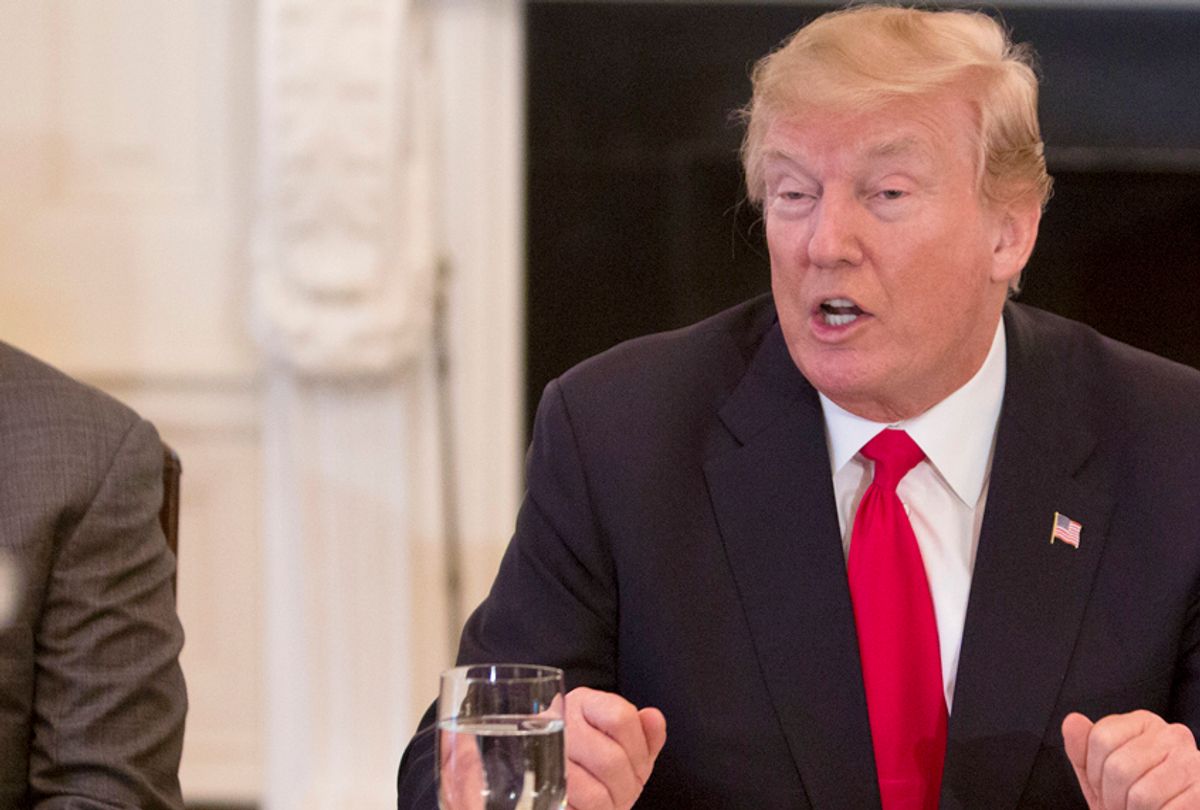President Donald Trump has abruptly reversed course on his choice for America's ambassador to South Korea after his original nominee disagreed with some of his administration's policies.
Victor Cha, who had experience working for President George W. Bush and is currently a professor at Georgetown University, expressed his disagreement with the National Security Council's consideration of a "bloody nose" proposal toward North Korea, as well as with Trump's new trade policies toward South Korea, according to The Washington Post. The "bloody nose" proposal refers to the idea of preemptively striking North Korea in a limited capacity as a deterrent against future and more aggressive actions by the unpredictable dictatorship. In terms of trade policy, Trump has threatened to pull America out of a bilateral trade deal with South Korea that he considered unfair to American companies and imposed new tariffs on washing machines and solar energy panels.
Although the Trump administration has claimed that they pulled Cha's nomination because a red flag appeared during his background check, experts are skeptical that this could have been the real reason. Cha's nomination had already been formally sent to and approved by the South Korean government, a process known as "Agrément." Additionally, the Trump administration has had no problem nominating unqualified candidates in the past.
"The South Korean government received Agrément and granted a quick turnaround before the end of [last] year," one Obama administration official told the Post. "It’s inconceivable that there would be anything so complex in the portfolio of an academic that wouldn’t be quickly resolved” well before the process of Agrément occurred.
In addition to privately expressing his reservations about some of Trump's foreign policies, Cha also wrote an editorial in The Washington Post earlier this week that elaborated on why he felt a "bloody nose" approach toward North Korea could backfire.
After expressing sympathy for the reasons why the Trump administration would want to use a "bloody nose" approach to get North Korea to improve its behavior, Cha wrote that "there is a point at which hope must give in to logic. If we believe that Kim is undeterrable without such a strike, how can we also believe that a strike will deter him from responding in kind?"
Cha added, "And if Kim is unpredictable, impulsive and bordering on irrational, how can we control the escalation ladder, which is premised on an adversary’s rational understanding of signals and deterrence?"
Trump's belligerent attitude toward North Korea, which he has displayed on a number of occasions through his tweets, was evident again on Tuesday night during his State of the Union address.
"Past experience has taught us that complacency and concessions only invite aggression and provocation," Trump told Congress. "I will not repeat the mistakes of past administrations that got us into this dangerous position."
Trump's approach toward North Korea has had its defenders, such as Jamie Fly, another former foreign policy adviser under President George W. Bush and currently a senior fellow at the German Marshall Fund.
"I'm not a fan of the Twitter diplomacy that Trump often tries to use. I think the reality, though, is that Kim Jong-un — because he is so intent on acquiring this nuclear capability, of hitting the United States — he is an erratic, unpredictable figure," Fly told Salon in November. "You know, so I don't think that the risky partner in this equation is Donald Trump, it's Kim Jong-un."



Shares